"I want to continue growing by taking advantage of the investigative skills I have acquired through the seminar and by gaining a variety of perspectives."
Sachi Ueno, 4th year student, School of Law
Shoki Okamoto, 4th year student, School of Law
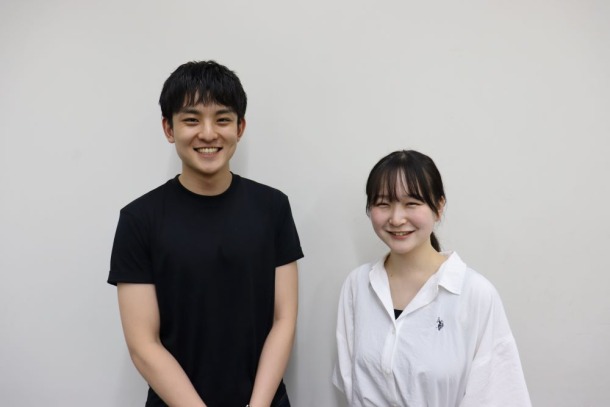
At Building 8 on Waseda Campus. From the left: Okamoto and Ueno
With the motto of "study hard and play hard," Sachi Ueno and Shoki Okamoto are members of Professor Takashi Kubota 's seminar, who is well-known for being one of the most active members of the School of Law. While seminars at the School of Law begin in the fall semester of the second year, the two are very active in the field of international trade law in Prof. Kubota's seminar, having immediately participated in an overseas mock arbitration competition since joining. We spoke to the two, who won the grand prize in the International Trade Law Column Contest and were also awarded the Waseda University Student Culture Award, about what led them to join the seminar, their activities to date, and their outlook for the future.
--What are you learning in the Kubota seminar?
Ueno: We are studying international trade law, which is the general term for the laws used in transactions between companies across borders. Each student in the seminar is proactive in their activities, such as participating in competitions both on and off campus, domestically and internationally, as part of seminar projects.
--There are many seminars for each law field, so why did you choose the Kubota seminar?
Okamoto: While most seminars are focused on classroom learning, this seminar is very active, taking part in international mock arbitration competitions, participating in the associated independent seminars, and writing papers. I chose this seminar because I thought it would be beneficial for me to not only study hard, but also to be exposed to a variety of different environments. Another deciding factor was that I could improve my English skills by participating in international competitions.
Ueno: I chose the Kubota seminar because I was attracted to the idea of studying international trade law in an environment where I could devote myself to it. When I lived in Southeast Asia as a child, I could never forget the sight of large amounts of plastic products being imported from overseas and then abandoned. I witnessed villagers becoming ill from harmful substances released from plastic when heated, and I began to see social issues as something that concerned me personally. As a result, I became interested in the social and environmental issues that arise in transactions between companies across borders, and I wanted to learn about the laws that govern those transactions.
Left: A scene from a seminar camp in Thailand in September 2024. Thailand is a country with a strong understanding of gender diversity. Through lectures at Chulalongkorn University and discussions with local students, they broadened their values and worked to foster mutual understanding. Professor Kubota is in the center of the front row, and Okamoto is second from the right in the back row.
Photo on the right: An unusually designed apartment building. Dorado Waseda near Waseda Campus that we visited on a seminar walk, During the spring semester when there are no major competitions, students learn about society by walking around the city.
--Please tell us about the most memorable experience you had during your seminar activities.
Okamoto: When I was a second-year student, right after joining the seminar, I participated in the Willem C. Vis International Commercial Moot Arbitration (hereinafter referred to as Vis Moot) held in Austria. In this competition, we acted as representatives of the parties in a mock trial to arbitrate disputes between companies from different countries. We competed to see who could present the most persuasive arguments and create an advantageous situation for the company we were in charge of.
This competition is participated in by second-year students, who spend six months preparing for it starting in the fall. Soon after the seminar started, students were given an assignment in English that consisted of about 60 pages of fictitious company disputes, contracts, and written responses from the parties involved. It is difficult to understand the materials if you just read them straight away, but the activities for the competition were all supervised by fourth-year students, so I worked closely with my seniors to prepare.
The opening ceremony of the Vis Moot Vienna competition. Participating teams from 88 countries and about 365 schools gathered (photo left). Six of my classmates from Prof. Kubota's seminar participated. From the far right, Okamoto and Ueno (photo right)
Ueno: I also remember the Inter-University Negotiation Competition that I participated in as a third-year student. In this competition, we competed in mock arbitration and mock negotiation. In the mock negotiation, we were divided into companies from country A and country B, and we played the role of employees of the fictitious companies and engaged in negotiations based on mock problems related to international business disputes.
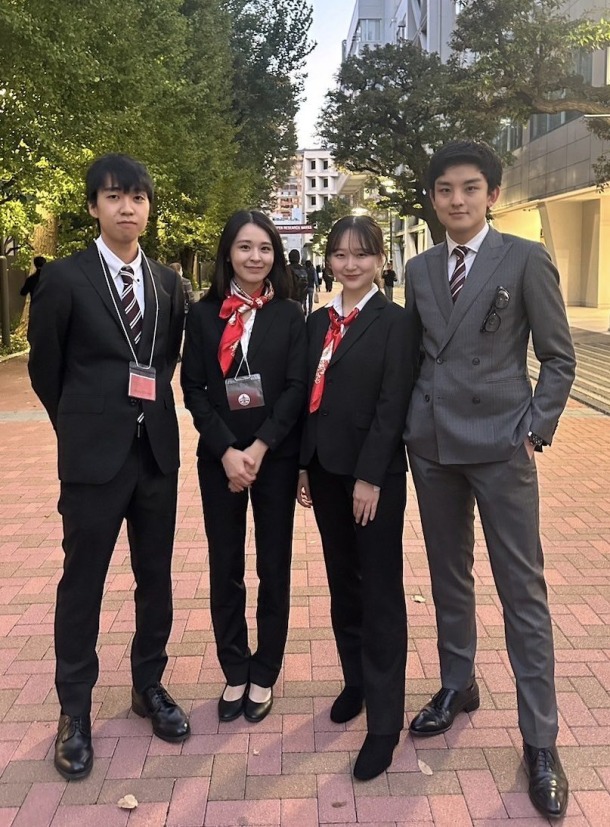
They participated in the Inter-University Negotiation Competition as a team conducting mock negotiations in English. From the right: Okamoto and Ueno
Okamoto: I also have fond memories of winning the top prize together with Ueno in the International Trade Law Column Contest. In the Vienna Convention on Contracts for Sales of Goods (※1), which was used in the Vis Moot, there was a provision in the law that I had doubts about the interpretation of, so I wrote a column offering suggestions on the matter.
(※1) An international treaty that sets out the basic rules regarding sales contracts in international transactions.
Ueno: I discussed how international trade law can be applied to regulate social and environmental issues that accompany transactions between companies. In particular, I focused on the fact that it is difficult under current law to regulate ESG (※2) issues faced by global companies that have supply chains overseas from Japan.
(※2) An abbreviation of Environment, Social and Governance. It refers to the idea that companies should take the environment, society and corporate governance into consideration, and indicates the responsibility they bear to society.
-Have you grown in any way through the contest?
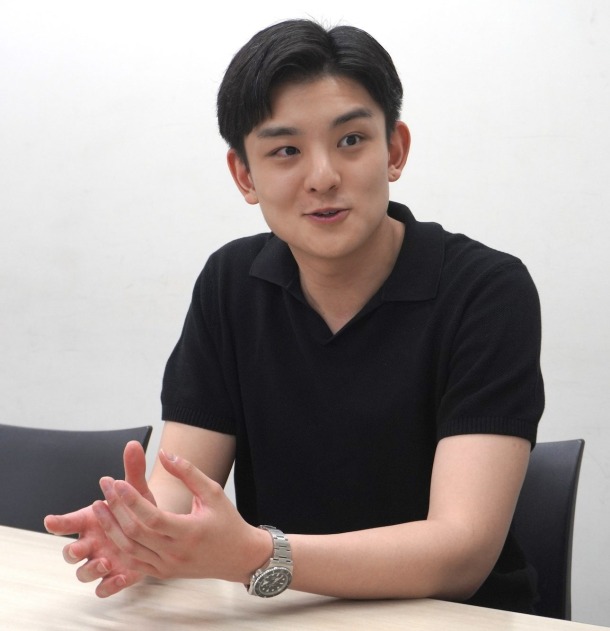
Okamoto
Okamoto: I think my thinking about the laws we deal with has deepened. Also, after winning the contest, I was invited by Professor Kubota to present the contents of my column at the International Trade Law Association. It was a valuable experience to express my thoughts and opinions in such a dignified setting as an academic conference, and being able to exchange opinions with researchers was a moment when I realized how much I had grown.
Ueno: I was able to achieve what I had always wanted to do and gain experience in putting my expertise into practice. I struggled to find theories to support my claims, going to the library every day and reading every single paper I could find, but I feel that it helped me improve my level. It was also my first time presenting at an academic conference, so I was happy to have a great sense of accomplishment.
--Please tell us why you decided to go to the School of Law at Waseda University.
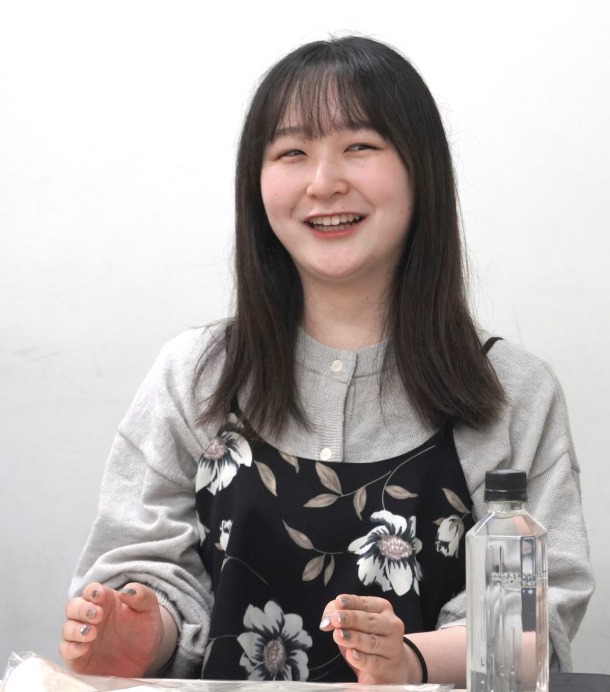
Ueno
Okamoto: When I was in high school, I had no idea what I wanted to be in the future. However, because law is the foundation of society and is deeply related to our lives, I felt that it would be very versatile no matter what I wanted to achieve, so I chose the School of Law. It turned out to be a good experience because I was able to have experiences such as participating in overseas competitions, and I was able to learn a lot.
Ueno: My childhood experiences have made me want to contribute to society through public work. To achieve this, I chose the School of Law, as I knew I had to study law, which is included in the national civil service examination. In the end, my desire to solve social issues through business grew stronger, so I chose to work for a private company without taking the national civil service examination, but Waseda's School of Law offered a high degree of freedom in career paths and supported my choice.
-How do you want to use what you learned at university in the future?
Okamoto: Now that I'm a fourth-year student, I want to plan the teaching methods for second- and third-year students in the seminar and support them in achieving their goals. I also want to utilize the legal knowledge and legal thinking I have learned at my workplace. Based on the practical learning I have experienced so far, such as corporate negotiations in mock trials, I would like to continue to grow with various perspectives for myself and society.
Ueno: I believe that the seminar has given me the ability to explore what I want to know, so I would like to continue to value my intellectual curiosity and pursue specialized knowledge at work as well.
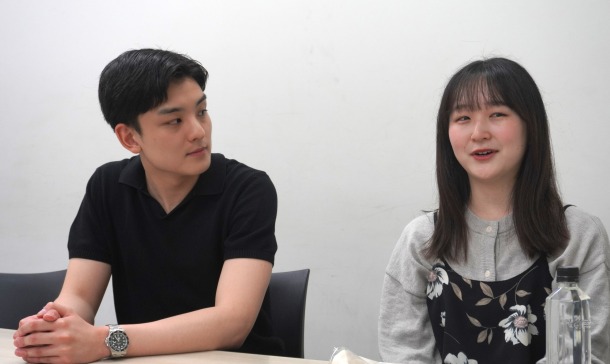
During the interview
905th
Interview, text and photography: Waseda Weekly Reporter (SJC student staff)
Rinka Nishimura, 3rd year student, School of Human Sciences
【profile】
Sachi Ueno: Born in Tokyo. Graduated from Tokyo Metropolitan Tachikawa International Secondary School. Was a member of Waseda Festival Management Staff (official student club) until 2024. On her days off, she often goes for drives with her family and friends, and will go anywhere in the Kanto region.
Shoki Okamoto: Born in Hokkaido. Graduated from Ritsumeikan Keisho High School. He likes traveling both domestically and internationally and has recently visited Thailand and Vietnam. Every winter, he travels to Niigata to enjoy his hobby of snowboarding.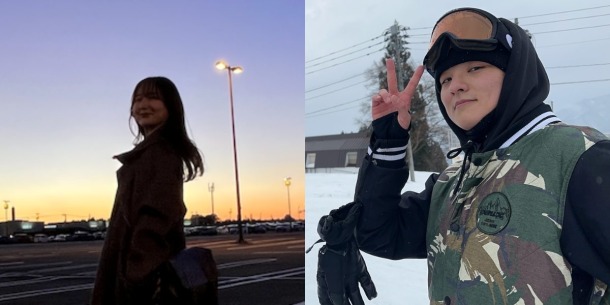
Left: Ueno, at the Shisui Outlet, which she visited on a drive.
Right: Okamoto, snowboarding

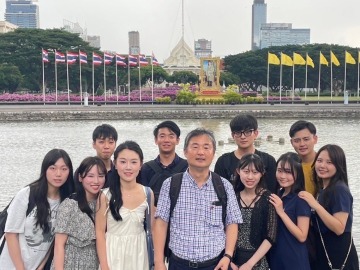
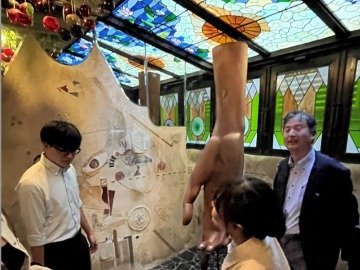
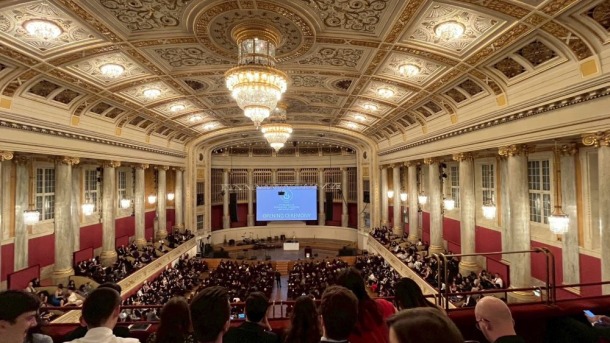
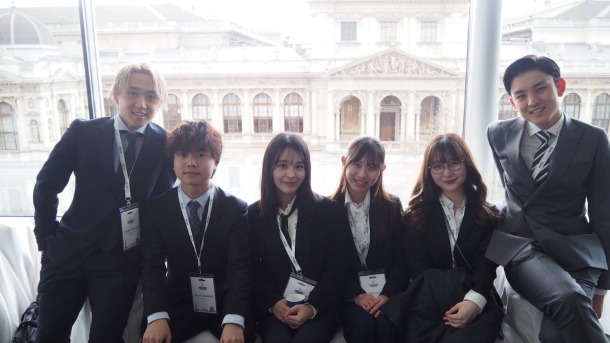
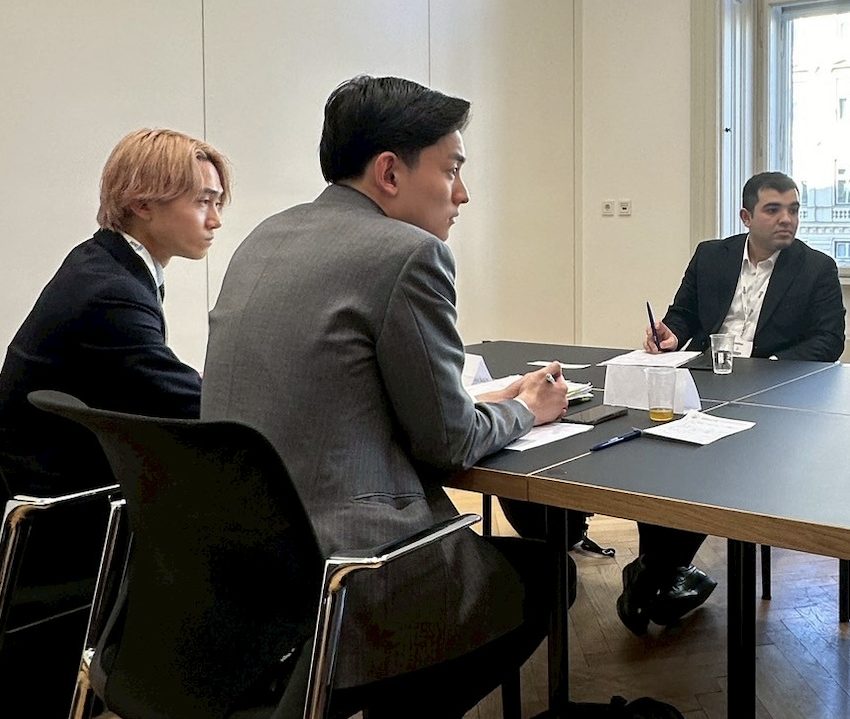
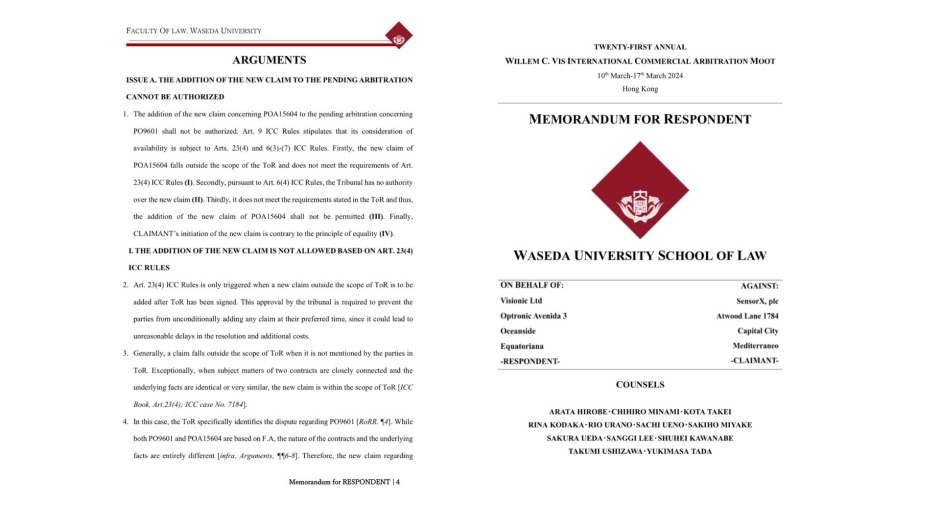
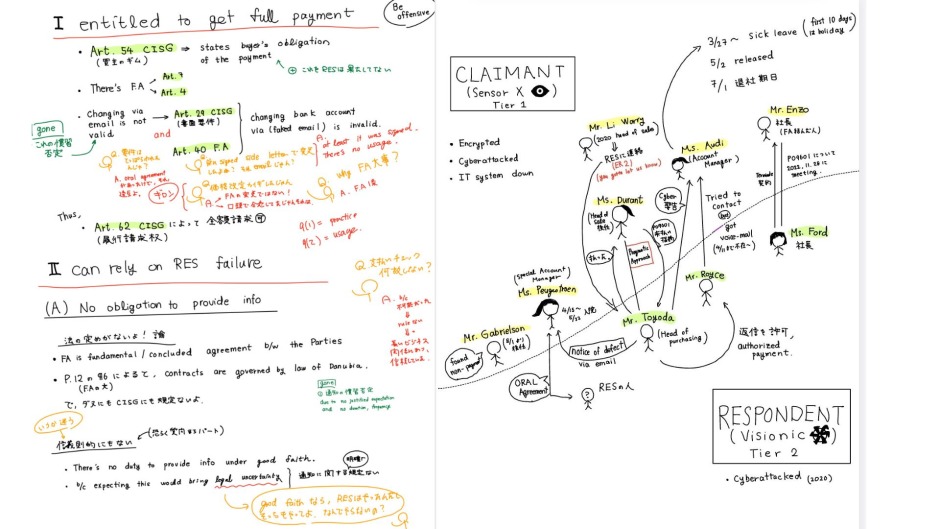
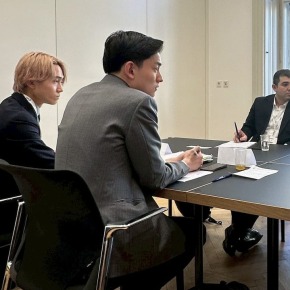
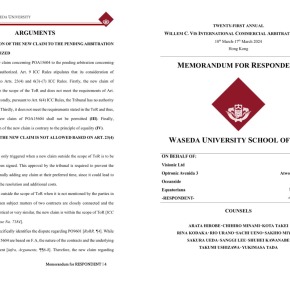
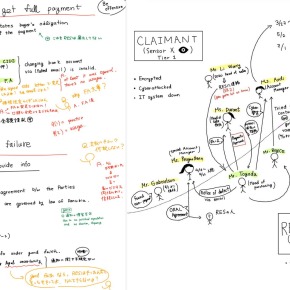
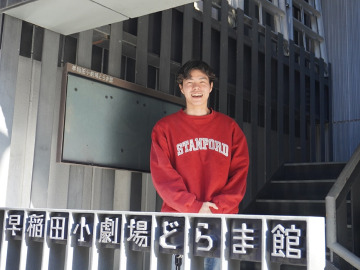
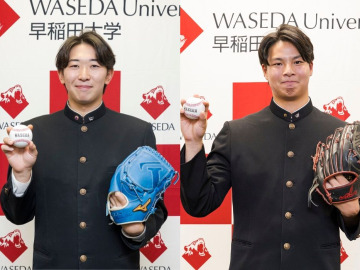
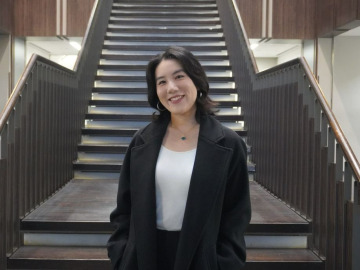
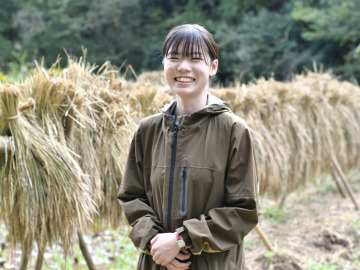

![[Save version] Map of the four main campuses](https://www.waseda.jp/inst/weekly/assets/uploads/2025/09/17cb2975123fc5103172ef60bd98608d-610x458.jpg)

